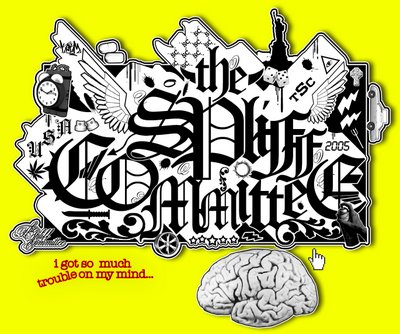No 'Smoking' Gun: Research Indicates Teen Marijuana Use Does Not Predict Drug, Alcohol Abuse
 http://www.sciencedaily.com/releases/2005/02/050211084701.htm
http://www.sciencedaily.com/releases/2005/02/050211084701.htmMarijuana is not a "gateway" drug that predicts or eventually leads to substance abuse, suggests a 12-year University of Pittsburgh study. Moreover, the study's findings call into question the long-held belief that has shaped prevention efforts and governmental policy for six decades and caused many a parent to panic upon discovering a bag of pot in their child's bedroom.
The Pitt researchers tracked 214 boys beginning at ages 10-12, all of whom eventually used either legal or illegal drugs. When the boys reached age 22, they were categorized into three groups: those who used only alcohol or tobacco, those who started with alcohol and tobacco and then used marijuana (gateway sequence) and those who used marijuana prior to alcohol or tobacco (reverse sequence).
Nearly a quarter of the study population who used both legal and illegal drugs at some point -- 28 boys -- exhibited the reverse pattern of using marijuana prior to alcohol or tobacco, and those individuals were no more likely to develop a substance use disorder than those who followed the traditional succession of alcohol and tobacco before illegal drugs, according to the study, which appears in this month's issue of the American Journal of Psychiatry.
"The gateway progression may be the most common pattern, but it's certainly not the only order of drug use," said Ralph E. Tarter, Ph.D., professor of pharmaceutical sciences at the University of Pittsburgh School of Pharmacy and lead author of the study. "In fact, the reverse pattern is just as accurate for predicting who might be at risk for developing a drug dependence disorder."
In addition to determining whether the gateway hypothesis was a better predictor of substance abuse than competing theories, the investigators sought to identify characteristics that distinguished users in the gateway sequence from those who took the reverse path. Out of the 35 variables they examined, only three emerged to be differentiating factors: Reverse pattern users were more likely to have lived in poor physical neighborhood environments, had more exposure to drugs in their neighborhoods and had less parental involvement as young children. Most importantly, a general inclination for deviance from sanctioned behaviors, which can become evident early in childhood, was strongly associated with all illicit drug use, whether it came in the gateway sequence, or the reverse.
While the gateway theory posits that each type of drug is associated with certain specific risk factors that cause the use of subsequent drugs, such as cigarettes or alcohol leading to marijuana, this study's findings indicate that environmental aspects have stronger influence on which type of substance is used. That is, if it's easier for a teen to get his hands on marijuana than beer, then he'll be more likely to smoke pot. This evidence supports what's known as the common liability model, an emerging theory that states the likelihood that someone will transition to the use of illegal drugs is determined not by the preceding use of a particular drug but instead by the user's individual tendencies and environmental circumstances.
"The emphasis on the drugs themselves, rather than other, more important factors that shape a person's behavior, has been detrimental to drug policy and prevention programs," Dr. Tarter said. "To become more effective in our efforts to fight drug abuse, we should devote more attention to interventions that address these issues, particularly to parenting skills that shape the child's behavior as well as peer and neighborhood environments."
Indeed, according to the study, interventions focusing on behavior modification may be more effective prevention tactics than current anti-drug initiatives. For example, providing guidance to parents -- particularly those in high-risk neighborhoods -- on how to boost their caregiving skills and foster bonding with their children, could have a measurable effect on a child's likelihood to smoke marijuana. Also, early identification of children who exhibit antisocial tendencies could allow for interventions before drug use even begins.
Although this research has significant implications for drug abuse prevention approaches, Dr. Tarter notes that the study has some limitations. First, as only male behaviors were studied, further investigation should explore if the results apply to women as well. Also, the examination of behaviors in phases beyond alcohol and marijuana consumption in the gateway series will be necessary.
Other study authors include Michael Vanyukov, Ph.D., and Maureen Reynolds, Ph.D., and Levent Kirisci, Ph.D., also of the University of Pittsburgh School of Pharmacy; and Duncan Clark, M.D., Ph.D., of the University of Pittsburgh School of Medicine. The research was funded by the National Institute on Drug Abuse.

 The Spliff Committee
The Spliff Committee

























